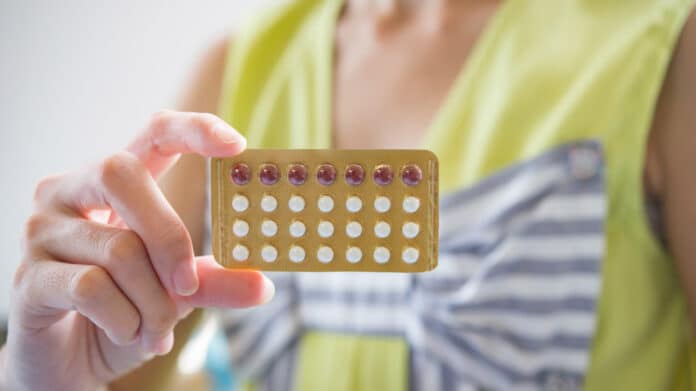An estimated 151 million women of reproductive age use oral hormonal contraceptives. Many women benefit from avoiding abortions and unwanted pregnancies, as well as menstrual bleeding and pain disturbance. Clinical evidence indicates that hormonal contraception can affect some women’s mood, yet the link between using hormonal contraception and depression remains inadequately addressed.
A new study from Uppsala University aims to estimate the risk of depression associated with initiating oral contraceptives (OC) and the effect of OC use on the lifetime risk of depression.
The study found that women who used combined contraceptive pills were at greater risk of developing depression than women who did not. Contraceptive pills increased women’s risk by 73 percent during the first two years of use.
The researchers gathered information on how often women used contraceptive pills when they were first diagnosed with depression and when they first noticed depressive symptoms without receiving a diagnosis. The technique of contraception investigated was combination contraceptive pills, which include estrogen and progestogen, a substance that resembles the hormone progesterone.
Oestrogen thins the uterine lining to inhibit the implantation of a fertilized egg, whereas progestogen suppresses ovulation and thickens the cervical mucus to prevent sperm from entering the uterus.
Therese Johansson of the Department of Immunology, Genetics, and Pathology at Uppsala University said, “Although contraception has many advantages for women, medical practitioners, and patients should be informed about the side effects identified in this and previous research.”
The study found that women who started taking birth control pills as teenagers had a 130% greater frequency of depressive symptoms than adult users, who saw a 92% increase.
Johansson says, “The powerful influence of contraceptive pills on teenagers can be ascribed to the hormonal changes caused by puberty. As women in that age group have already experienced substantial hormonal changes, they can be more receptive to hormonal changes and other life experiences.”
The higher incidence of depression decreased, the researchers observed, as long as the women continued to take contraceptive pills after the first two years. Contrary to what was seen in adult pill users, teenage pill users continued to have an elevated incidence of depression even after discontinuing the medication.
The study’s findings suggest that healthcare providers should be more aware of potential connections between various bodily systems, such as those between depression and the usage of birth control pills. The researchers conclude that it is crucial for healthcare professionals to warn women considering contraceptive pills about the possibility of developing depression as a side effect of the medication.
Johansson says, “Since we only investigated combined contraceptive pills in this study, we cannot conclude other contraceptive options, such as mini-pills, contraceptive patches, hormonal spirals, vaginal rings, or contraceptive rods. In a future study, we plan to examine different formulations and administration methods. Our ambition in comparing different contraceptive methods is to give women even more information to help them make well-informed decisions about their contraceptive options.”
Journal Reference:
- T. Johansson, S. Vinther Larsen, M. Bui, W. E. Ek, T. Karlsson, A. Johansoon. A population-based cohort study of oral contraceptive use and risk of depression. Epidemiology and Psychiatric Sciences. DOI: 10.1017/S2045796023000525
